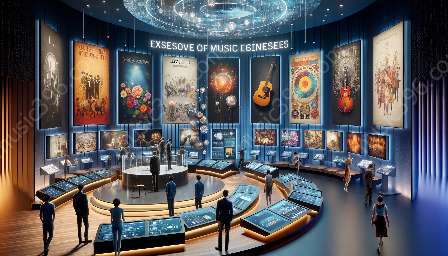Music has held a profound and enduring connection with spirituality across cultures and time, evoking emotions, serving as a vehicle for transcendence, and shaping religious and philosophical traditions. This relationship has been explored through a critical musicology lens, which seeks to analyze and challenge traditional understandings, as well as through musicology, the scholarly study of music encompassing historical, cultural, and social dimensions.
The Intersection of Music and Spirituality
At its core, the relationship between music and spirituality transcends mere entertainment or aesthetic pleasure. Music has been integral to religious and spiritual practices, serving as a conduit for connecting with the divine, expressing faith, and fostering communal worship and meditation. As such, the ways in which music is employed in spiritual contexts have been subject to critical examination within the field of musicology.
Within critical musicology, scholars delve into the power dynamics of musical practices within spiritual and religious settings, questioning how music can reinforce or challenge dominant ideologies. This branch of study aims to unpack the cultural and social influences that shape musical expressions of spirituality, providing a deeper understanding of the complexities inherent in the relationship between music and spiritual beliefs.
Music as a Source of Transcendence
Music has a unique ability to transport the listener beyond the mundane and into the realm of the sacred. In spiritual traditions, such as Sufism in Islam or Bhakti in Hinduism, music plays a central role in facilitating transcendent experiences. These traditions have been examined by musicologists who seek to understand the emotive and transformative power of musical sounds and rhythms in spiritual rituals and practices.
From a critical musicology perspective, the study of music's capacity for transcendence involves interrogating how musical structures and performances serve as sites for negotiating power, identity, and spirituality. This critical inquiry sheds light on the ways in which music both reflects and shapes spiritual experiences, challenging essentialist views of music as solely a medium for transcendence.
Musical Performance and Ritual
Within various spiritual traditions, musical performance is intricately woven into sacred rituals and ceremonies. Whether it's the soothing chants of Gregorian plainchant in Christian liturgy or the ecstatic drumming and singing in African and Afro-Caribbean spiritual practices, music embodies and animates the sacred space. Musicologists examine the historical evolution of these rituals and their musical components, providing insights into the cultural and social contexts that have shaped the intertwined relationship between music and spirituality.
Critical musicology, in turn, analyzes how musical performances in ritualistic settings may reinforce existing power structures or, conversely, provide avenues for subversion and resistance. By critically examining the performance and reception of spiritual music, scholars aim to highlight the complex dynamics at play, shedding light on how music can serve as a reflection of, and challenge to, established spiritual norms and traditions.
Conclusion: An Ever-Evolving Connection
In conclusion, the relationship between music and spirituality is a multifaceted and dynamic interplay that has captivated critical musicologists and musicologists alike. Exploring the profound spiritual dimensions of music within diverse cultural and religious contexts enriches our understanding of music's role in shaping and expressing spiritual beliefs. By engaging with critical musicology and musicology, scholars continue to unravel the intricate connections between music and spirituality, shedding light on the transformative and transcendent power of musical expressions within the spiritual domain.



















